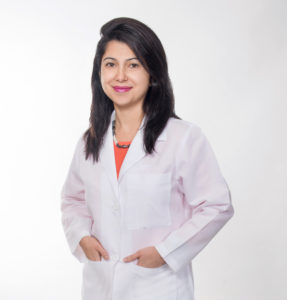What Does a Rheumatologist Do? Meet These Nashville Docs!
/in Uncategorized/by Daniel Chioko“Rheumatology? What’s that?”
Fair question. If you’re like the majority of people, you may never require care from a rheumatologist. When you have a good primary care doctor, your requirements for diagnosis and treatment with other specialists may be somewhat limited.
But for those patients who have autoimmune diseases like rheumatoid arthritis or lupus, a rheumatologist could be a life-saver. Rheumatologists specialize in the diagnosis and treatment of musculoskeletal disease and autoimmune conditions. These diseases, which include rheumatoid arthritis, lupus, scleroderma, fibromyalgia, osteoarthritis and polymyositis (among others), can cause pain and swelling in the joints, muscles and bones.
How Can a Rheumatologist Help Me?
If you experience muscle or joint pain that’s different from the common aches and pains you’ve known in the past, you may wish to see your primary care doctor for an evaluation. If your physician is concerned that your symptoms could be caused by a rheumatic condition, then he or she may refer you to a board-certified rheumatologist.
These diseases can be complex, but your rheumatologist will perform a full physical exam and evaluate your medical history in order to establish a plan of care. Diagnostic imaging test (such as x-ray, MRI, ultrasound and CT scan) may be ordered. Treatment may be administered via medication, injection, lifestyle modification, or other therapies.
Meet These Nashville Rheumatologists
St. Thomas Medical Group is home to two Nashville-area rheumatology specialists. Rheumatologists have received additional training beyond that of an internal medicine physician.

Leslie Cuevas, M.D.
Dr. Cuevas grew up in Germantown, TN. She attended Drake University on a softball scholarship and graduated in 1995 with a BA in Biology. She earned her medical degree at the University of Iowa College of Medicine in 1999. She then moved to Nashville where she completed her Internal Medicine residency at University of TN – Nashville in 2002 followed by a Rheumatology fellowship at Vanderbilt University in 2004. She joined Arthritis Specialists of Nashville after completing her training.
Dr. Cuevas moved with her family to Denver, CO, and spent time studying at Denver Seminary, but she has recently moved back home! She is excited to join St. Thomas Medical Group to provide rheumatologic care to the people of Nashville and the surrounding areas. She has a special interest in treating patients with fibromyalgia.
She spends her personal time with the ones she loves most: God, her family, and the Tennessee Titans! | Schedule With a Nashville Rheumatologist Online or call +1 (615) 964-5823.
Poonam Somai, M.D.
Dr. Somai has been with St. Thomas Medical Group since 2009. She earned her Medical Degree at the University of Bombay, India in 2001. She completed her residency training in Internal Medicine at Michigan State University in 2005 where she served as a Chief Resident. She then completed her fellowship in Rheumatology in 2007 at the University of Iowa.
She is Board certified in Rheumatology and treats diseases like rheumatoid arthritis, lupus, scleroderma, fibromyalgia, osteoarthritis and polymyositis. She specializes in ultrasound-guided injections of the joint, tendon and bursa.
She enjoys traveling and exploring different cultures / cuisines, reading, and spending time with her husband, daughter and twin boys.
She provides specialized care to the Gallatin community outside of her office hours at St. Thomas Medical Group. Dr. Somai is accepting new patients by referral. | Schedule With a Nashville Rheumatologist Online or call +1 (615) 964-5823.
Spot Stroke Symptoms FAST With These Guidelines
/in Uncategorized/by Daniel ChiokoDid you know that stroke is the fifth leading cause of death in the US?
One out of every twenty deaths is caused by stroke.
A stroke occurs every forty seconds in the US and takes a life every four minutes, according to the CDC.
So, what we can do about it?
This May, in recognition of Stroke Awareness Month, St. Thomas Medical Group is encouraging Nashvillians to learn about three common stroke symptoms.
Recognizing these symptoms in a stroke victim – and quickly seeking emergency care – can potentially save a stroke victim’s life. When it comes to stroke, every second counts.
What Is A Stroke?
There are a few different types of strokes. Ischemic and hemorrhagic are two common types. In an ischemic stroke, an artery becomes blocked, reducing blood flow to the brain. In a hemorrhagic stroke, a blood vessel may leak or burst, creating swelling or pressure around the brain.
Strokes can cause significant and permanent brain damage in survivors. However, seeking emergency care as quickly as possible can minimize damage and improve the chances of recovery. The treatment window can be quite narrow…
- Three-hour window: Patients suffering ischemic stroke, for example, may receive a drug known as Alteplase IV r-tPA; this drug must be administered within three hours of stroke onset. In some cases, a patient may be eligible within a 4.5-hour window.
- Six-hour window: Another option for stroke treatment is thrombectomy. This is a minimally-invasive procedure in which a surgeon removes the blood clot causing the stroke. This procedure should be done within six hours of the onset of symptoms. In some cases, the procedure may be done within a 24-hour window (Source: Stroke Association).
The Three Symptoms – FAST
Because stroke treatment windows are so narrow, it’s critical that everyone knows how to recognize stroke symptoms. Use the FAST acronym to help yourself remember the most common symptoms of a stroke:
- F – Face: Is the affected person able to smile? It’s common for one side of the face to droop in a stroke victim.
- A – Arms: Can the affected person raise both arms? Many stroke victims will have one arm drift downward.
- S – Speech: Is their speech clear and normal, or slurred? Ask them to repeat a simple phrase.
- T – Time: If you observe any of these symptoms, call 9-1-1 immediately.
Stroke Prevention Tips
There are many things you may be able to do to reduce your risk for stroke. The Stroke Association recommends:
- Get 7-8 hours of sleep per day.
- Be socially active.
- Eat a healthy diet, limiting sodium to 1500mg per day.
- Exercise 30 minutes per day.
- Get regular checkups with your local doctor at St. Thomas Medical Group!
- If you smoke, stop smoking.
Take Action Now With a Primary Care Provider in Nashville
Did you know that 80% of strokes in adults are preventable? Unfortunately, having just one stroke significantly increases the likelihood of having another one. That’s why it’s important to partner with a primary care provider in taking the right health measures today. Live in the Nashville area? Call St. Thomas Medical Group Department of Children and Adults at +1 (615) 301-7040
You can also make an appointment online.
It’s Time to Think of Physical Therapy as a First Line of Defense
/in Uncategorized/by Daniel ChiokoBack pain? If you’re like most patients, you try to stick it out for a few days. If the pain gets worse, you go to your primary care provider (PCP) or a walk-in clinic. Undoubtedly, most patients think this course is the “right way” to deal with a common joint or muscle issue. And, while there’s certainly nothing wrong with seeing your primary care physician, you should know that patients in Tennessee have a unique option that might actually provide a better way of managing your own health care.
The answer? Direct access to physical therapy.
Why See a Physical Therapist First?
Physical therapy is commonly thought of as a type of health care you receive after initial evaluation and treatment from a physician. And, in many states, this is true. As of 2007, Tennessee residents have the unique privilege of being able to schedule an appointment with a physical therapist (PT) without physician referral.
For patients, this means it’s now potentially faster, easier, and more affordable to see a physical therapist.
- Faster: You don’t have to see your PCP first before going to a physical therapist.
- Easier: You may be able to get all the care you need for a particular injury during a visit with your physical therapist.
- More Affordable: Instead of paying two co-pays (PCP and physical therapist), you only pay one by going directly to the PT. Also, multiple studies have shown that patients who receive an MRI first have significantly higher health care costs than patients who get physical therapy first.
When Is It a Good Idea to Go Straight to the PT?
If you have experienced a soft-tissue injury, you may be a good candidate for receiving care directly from a physical therapist. A soft-tissue injury is an injury that does not affect the bone. These injuries affect muscle, tendons, ligaments and other soft tissues. Acute examples include:
- Sprain
- Strain
- Swelling
- Contusion / bruising
Soft-tissue injuries resulting from overuse may include:
- Tendinitis
- Bursitis
Back pain is another common reason for seeing a physical therapist. Seeing a PT first may lower a patient’s total cost of care, bypassing imaging scans, opioid prescriptions, and other therapies that could be unnecessary or even harmful.
Find a Physical Therapist or Primary Care Doctor in Nashville
To find a primary care provider near you in Nashville, call STMG and STMG Children and Adult at +1 (615) 297-2700 and +1 (615) 301-7040. You can also make an appointment online. St. Thomas Medical Group is proud to partner with Results Physiotherapy.






